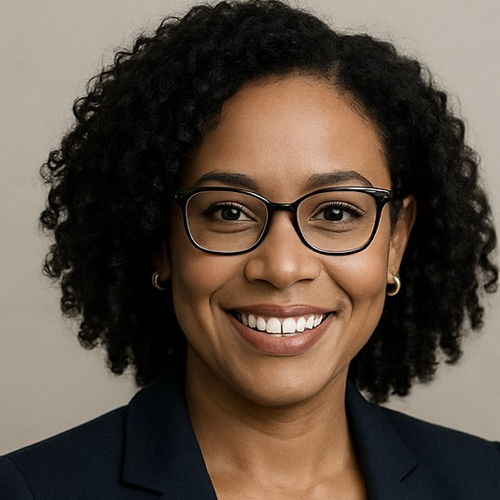From Administrative Assistant to National Leader: My Journey in Graduate Medical Education
How purpose, persistence, and people shaped my 25-year rise in healthcare leadership

When I walked into my first administrative job in healthcare over 25 years ago, I had no idea it would set me on a path that would change my life—and eventually impact the lives of countless residents, fellows, and colleagues in Graduate Medical Education (GME). I wasn’t thinking about titles, leadership roles, or national boards back then. I was thinking about doing my job well, learning as much as I could, and building strong relationships.
Fast forward to today: I serve as the Vice Chair of the Association of Program Managers in Obstetrics and Gynecology (APMOG), lead national mentorship and curriculum programs, and have presented at major conferences such as APGO/CREOG and the Council for Resident Education in Obstetrics & Gynecology Retreat. The journey from entry-level to national leader wasn’t linear, but it was shaped by three themes: purpose, persistence, and people.
Finding Purpose in the Details
My early years in administrative roles taught me the power of precision. In GME, details matter—whether it’s ensuring a resident’s credentialing is complete, a schedule is accurate, or accreditation requirements are met. These “behind-the-scenes” tasks may not be glamorous, but they are the backbone of resident training.
I quickly learned that the work I did wasn’t just paperwork—it was creating the infrastructure for medical education to thrive. When I reframed my role from “support” to “mission critical,” my sense of purpose deepened, and my work ethic reflected it.
Persistence Through Challenges
Like many women in leadership, I’ve faced moments where my capabilities were underestimated. There were times when opportunities seemed out of reach or when the work felt overwhelming. But instead of retreating, I leaned into challenges. I sought professional development, asked questions others were afraid to ask, and raised my hand for projects outside my comfort zone.
This persistence led me to roles that shaped my leadership skills: overseeing multiple fellowship programs, spearheading wellness initiatives, and developing national curricula for OBGYN program managers. Each step was built on the last—proof that growth often comes from saying “yes” before you feel ready.
The Power of People
If there’s one constant in my career, it’s the importance of relationships. My mentors saw potential in me that I didn’t always see in myself, and sometimes still don't see... My peers became collaborators. The residents and fellows I’ve supported over the years reminded me why this work matters.
As my network grew, so did my opportunities to lead on a larger stage. Serving on boards and committees allowed me to advocate for program managers everywhere, ensuring our voices are heard in conversations about education, wellness, and equity.
Advice for Women Charting Their Own Path
- Value your role, no matter the title. Every task has impact when tied to a larger mission.
- Invest in yourself. Conferences, certifications, and mentorship aren’t luxuries—they’re leadership tools. I always say the rate of return is unmeasurable!
- Build relationships intentionally. Your network is your greatest leadership accelerator.
- Say yes to opportunities that scare you. Growth lives in discomfort.
Today, I mentor new program managers, advocate for wellness in medical education, and continue to learn alongside peers who inspire me. My story is proof that you don’t have to start at the top to make a national impact—you just have to start, stay committed, and believe your work matters.


